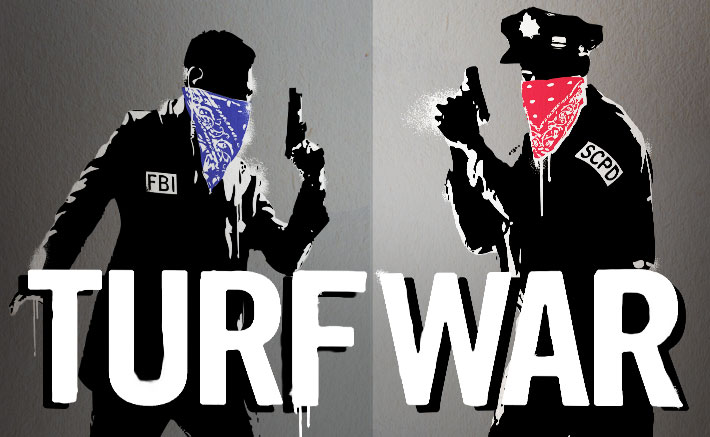
JUDGE NOT BY THE EYE BUT FROM THE HEART
Being an outsider on the reservation is a lot like being onstage: All eyes are on the visitor. Every member of the tribe watching their kids play in their front yards or in the street is also keeping watch on the cigarette shop patrons. Those unsure of what they’re looking for are met by local merchants eagerly hoping to score a sale from passing drivers.
The reservation doesn’t look that different from its neighbors on the Mastic Beach peninsula. Sidewalks are few and far between. Hot-rods in need of tune-ups are parked on front yards and home repairs are in need of completion.
Colorful signs light up the reservation like a mini-Las Vegas strip, but the only game here is figuring out which of the dozens of smoke shops has the best prices. Morning Dew, Dream Catcher, Native Tip. These are but a few of the stores, which range in size from a tiny trailer to a two-story ranch house. Most shops defy stereotypes, but one has a classic large wooden Indian standing outside its door to greet customers. The Rez used to have a restaurant; it closed long ago. Today the only appetite that feeds the local economy is smoking tobacco.
Unkechaug means “The people from beyond the hill,” but the tribe inhabiting the Poospatuck (which means “Where the waters meet”) Reservation these days feels more like they’re between a rock and a hard place. Since having their land stolen by European settlers, tribes across Indian Country have seen their share of hustlers take advantage of them, be they fur trappers who plied aboriginals with alcohol to get their natural resources, or modern-day international drug-trafficking gangs that flood poverty-stricken reservations with the same drugs they use their land for smuggling.
“In the past, the tax-free cigarettes attracted outsiders, and it was very difficult for the tribe to protect themselves against that kind of intrusion, and that’s what you see here, apparently,” says John Strong, a local historian and author of a series of books on LI’s ancient tribes. His latest, The Unkechaug Indians of Eastern Long Island, was released earlier this month.
The tribe includes about 500 members, nearly half of whom live in surrounding neighborhoods, although the tribal rolls are currently being updated. But bloodline questions are always dogging some among the Unkechaug as well as other tribes.
“They’re very proud of their Indian heritage and they really bristle at the racist notion of them being no longer Indians,” says Strong. Descendents proudly point to their ancestor, William Cooper, an Unkechaug sachem, or chief, who died in battle aboard the USS Constitution during the War of 1812.
Although they have not applied for federal recognition from the U.S. Bureau of Indian Affairs, and state lawmakers have proposed legislation to strip Poospatuck of state recognition amid New York’s ongoing cigarette-tax controversy, the Unkechaug are not down and out. In dismissing a lawsuit filed by NYC-based supermarket mogul John Castimitidis, who claimed that Poospatuck smoke shops were stealing his business, a federal judge in Central Islip ruled that the tribe has what is referred to as common-law federal recognition.

Without a paddle: Suffolk authorities said a gang converted this smoke shop, Indian Creek, into a front for drug dealing on the Poospatuck Reservation in Mastic last year.
While the gang infiltration may be unique on Long Island, also home to Southampton’s Shinnecock Reservation, larger tribes in Indian Country in the western United States battle drug trafficking rings that dwarf the Poospatuck problem. Until then, prior investigations on the reservation had been aimed mostly at cracking down on untaxed cigarette sales, a highly litigious issue that has torpedoed relations between this and other sovereign Indian nations with federal, New York State and Suffolk authorities. At LI’s other reservation, the Shinnecock Indian Nation in Southampton, tribal leaders in 2007 requested Spota investigate members operating a drug ring out of smoke shops there.
In the absence of their own police force, the Unkechaug had hired Ground Zero Security, a private firm. The company did not return repeated calls for comment. The wounded security guard was not their employee. The tribe has also just gone through an election that replaced its longtime chief Harry Wallace with Matthew Carroll.
Despite numerous requests, Chief Carroll would not comment for this article.
“We have a nice council—very strong people,” Carroll told the Long Island Advance shortly after winning the post. “I am looking forward to working with them for everybody, the whole community.”
Suffolk County investigators say that buyers from off the reservation would call and order their drugs in advance before coming onto Poospatuck to pick up their illicit take-out orders. According to Spota, the Indian Creek smoke shop became a one-stop shop for a carton of smokes, a vile of crack, a bag of weed, a few hits of Ecstasy and a packet of pills.




